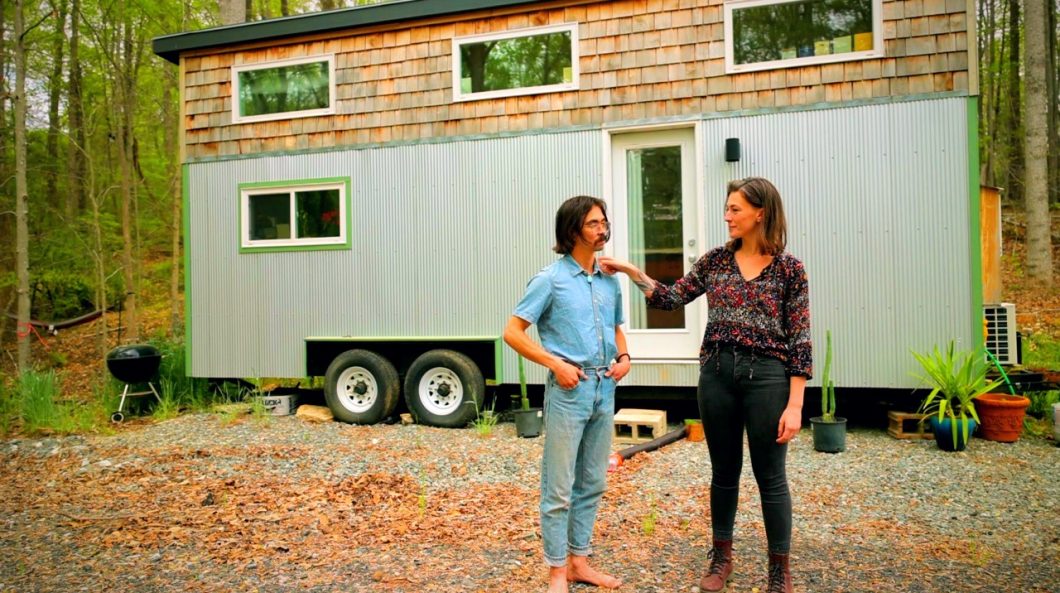Welcome to North Carolina’s new tiny house community, Cranmore Meadows. It’s located in Haw River, part of the Piedmont Region. The village sits on a 30-acre nature preserve and is split into three meadows. As you enter, the first meadow features the community guest house, shared kitchen & laundry room, and communal outdoor dining area. This is where many future events will take place. Owners Nathan and Callie also plan to turn it into a wedding venue, permaculture farm, wellness retreat, and host green building workshops.Second, you can find Callie and Nathan’s DIY tiny home in the second meadow, and the first phase of the tiny house village is up the hill. This hosts seven roomy and wooded rental lots. Then, the following open green area is where the second pocket of six parking spots will be located. Lastly, at the end of the 30-acre property is the most beautiful meadow. The Haw River surrounds it on three sides. Additionally, this is a camping and glamping area with earthen buildings.
Currently, in phase one, the tiny house lot rent is $600 per month. This includes septic, water, physical address, road maintenance, communal spaces, trash & recycling collection. In phase 2, they’d like to move to a sliding scale based on income. So someone who is a lawyer would pay more than another resident making minimum wage. Interestingly, Callie and Nathan are not breaking even with the existing rent payments. But going higher didn’t feel right to them. In part, this decision is what led them to explore other revenue-generating uses for their property that are still in line with their values of community building, sustainability, and grassroots education.
“We call ourselves benevolent dictators because we did interview a lot of founders of intentional communities and intentional communities with consensus built-in. They all said the same thing, don’t do it.We have really cool people in our community, and they have to run things by us before they move forward with doing a chicken coop and getting a half dozen chickens on-site or doing a community garden. But we have monthly meetings where we discuss that stuff. And folks can submit a budget to us, and we can all talk about it as a community, but ultimately Nathan and I make the decision and give the go-ahead.
